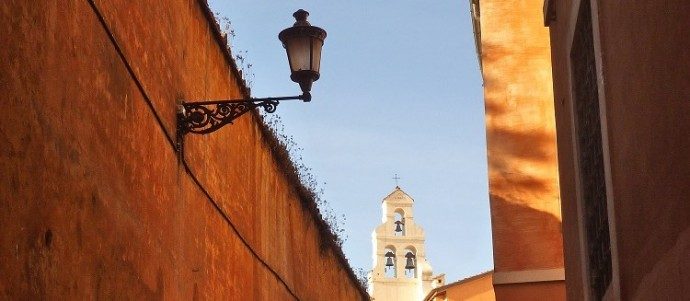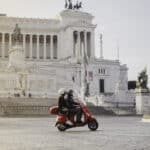What is it about this city? What is that intangible euphoria you’re feeling when you step outside? Do you find yourself writing emails to those back home and dissolving into platitudes? Do you take photos of cobblestone, crumbling palazzi, fountains or bridges with heartache because the beauty is so ‘obvious’ and yet even the non-conformist, the anti-tourist, the ex pat artist who loathes cliché is powerless here. Don’t worry, it’s happened to everyone. The most gifted writers and poets came to Roma and felt ashamedly derivative. But once they got over admitting their infatuation, they wrote with lyrical abandon about one of the most inspiring cities on earth…
Excerpt from: ‘Rome as the Writers Saw Rome’ by M.J. Cryan, elegantetruria.com/aswritersawrom.htm.
Nathaniel Hawthorne, the author of The Scarlet Letter and House of Seven Gables wrote:
“No place ever took so strong a hold of my being, nor ever seemed so close, so strangely familiar”. He began wondering how he and his family would live back in their New England village where “there are no pictures, no statues. Rome certainly does draw into itself my heart as I think even London or even little Concord or old sleepy Salem never did and never will.”
When Charles Dickens arrived in Rome on January 30, 1845, by way of Genoa and other northern cities, it was a rainy, muddy day at the beginning of Carnival time. His impressions of St. Peter’s may be close to those of other first time visitors since St. Peter’s has not changed except perhaps for the approach along the monolith-lined Via della Conciliazione that Mussolini had built after razing the late medieval quarter of Spina di Borgo.
“The beauty of the Piazza in which it stands, with its clusters of exquisite columns, and its gushing fountains – so fresh, so broad and free, nothing can exaggerate…The first burst of the interior, in all its expansive majesty and glory, and most of all, the looking up into the Dome, is a sensation never to be forgotten”.
From St. Peter’s Dickens had his coachman bring them to the Colosseum arriving there in a quarter of an hour, much quicker than we could do it with today’s traffic.
“To see it crumbling there… its walls and arches overgrown with green, its corridors open to the day, the long grass growing in its porches, young trees of yesterday springing up on its ragged parapets and bearing fruit… to see the peaceful Cross planted in the center, to climb into its upper halls and look down upon ruin, ruin, ruin, all about it… is to see the ghost of old Rome, wicked, wonderful city, haunting the very ground on which its people trod.”
Henry James, a very international American author, made his way to Rome in 1869 and paused at the D’Inghilterra Hotel, which is still thriving on Via Bocca di Leone, just long enough to leave his bags. Then he ran out, criss-crossing the city on foot for about five hours “in a fever of enjoyment” and at the end of this first day in Rome wrote to his brother back in Boston, “At last – for the first time – I live!”
Shelley wrote beautiful lyrics inspired by the Italian sky while living on Via del Corso but his private letters showed his disgust with Rome.
The poet Lord Byron also had ambivalent feelings about the city: enthusiastic and rhetorical in Childe Harolde’s Pilgrimage (“O Rome! My country, city of the soul!”) while he criticized Italy and Italian customs in his private letters.
Mark Twain visited the city that he called “a museum of magnificence and misery”. Slowly he learned to like Rome and adopted the Romans’ life-style as he “began to comprehend what life is for.”





It is all good but the fact remains that Roma then isn’t Rome today. Taxi drivers cheat shamelessly and supermarkets sell old/not fresh products, like bread (can you imagine that!?!). Shameful. Oh, and it looks like Rome is tired of tourists and yet in need of them. So, it is a hit or miss kind venture.
However, the ancestors’ gift is still worth all the inadequacy of the current culture who hardly deserve it.